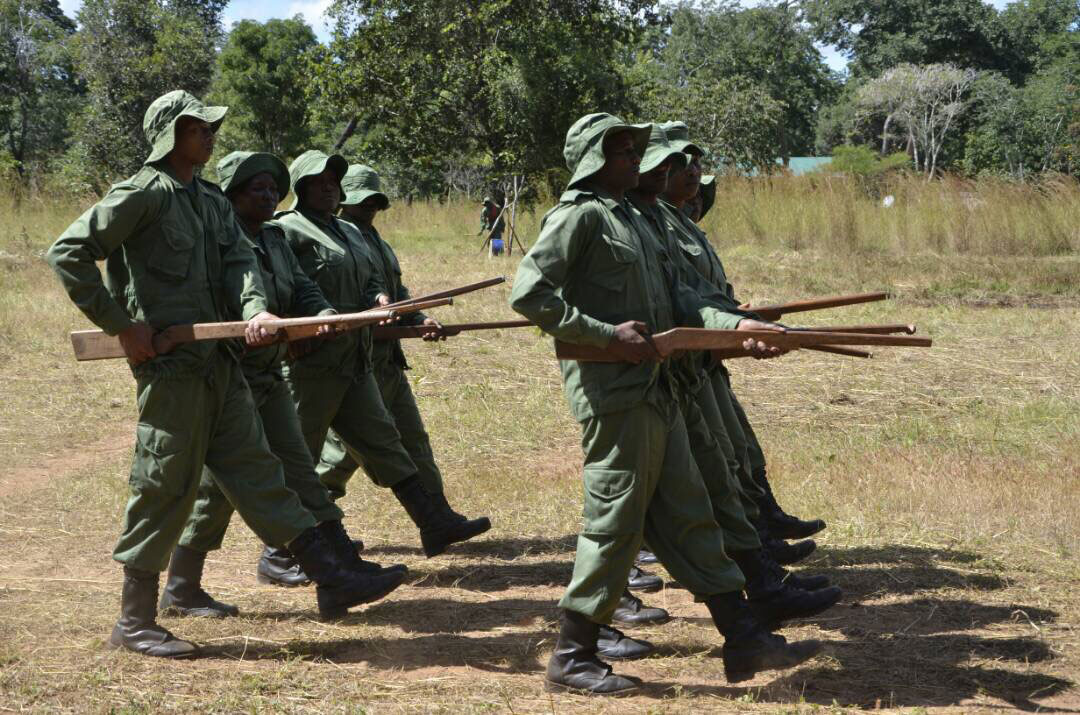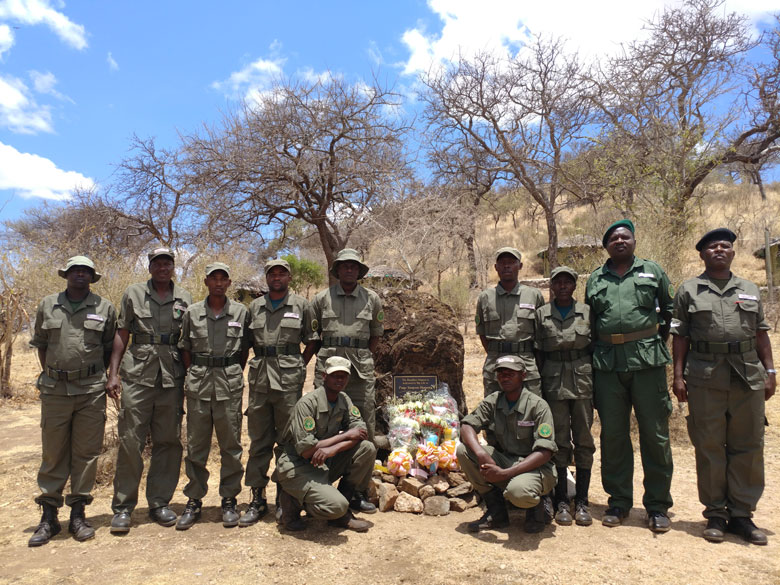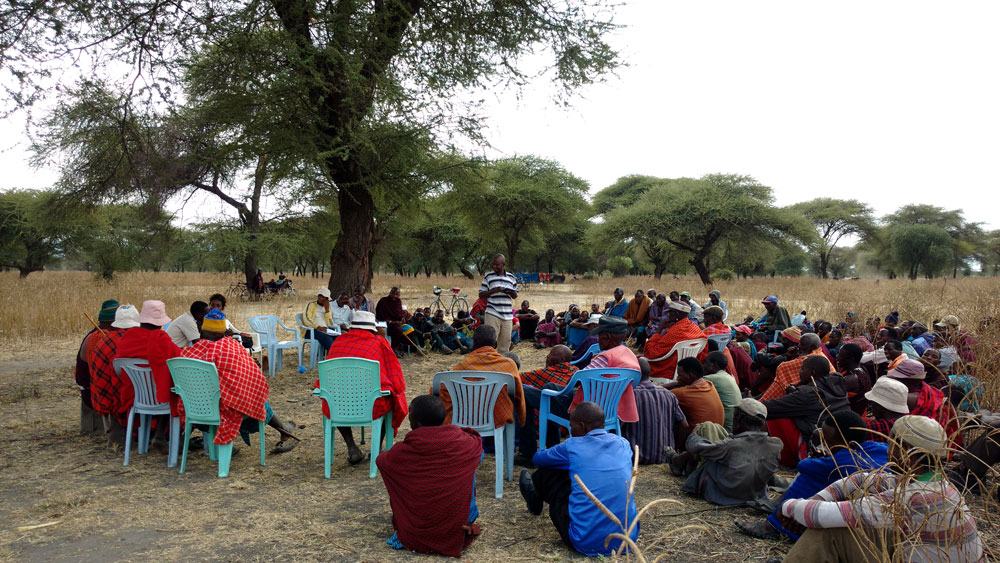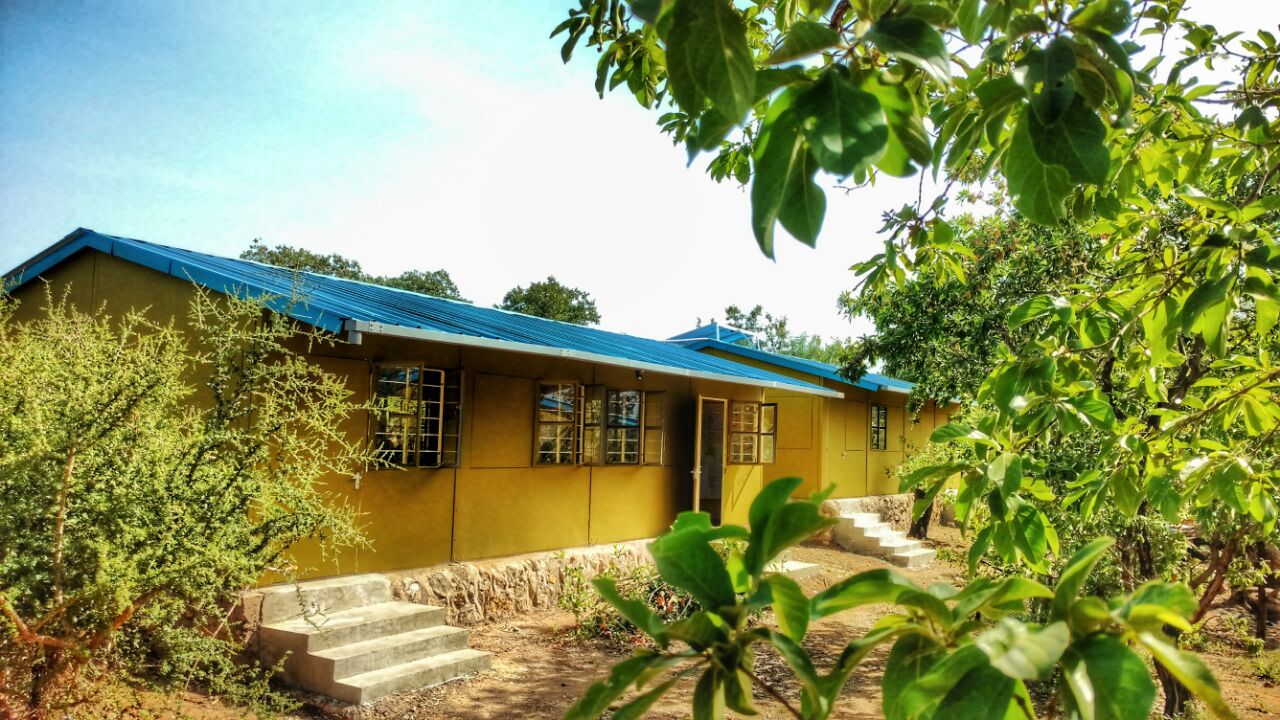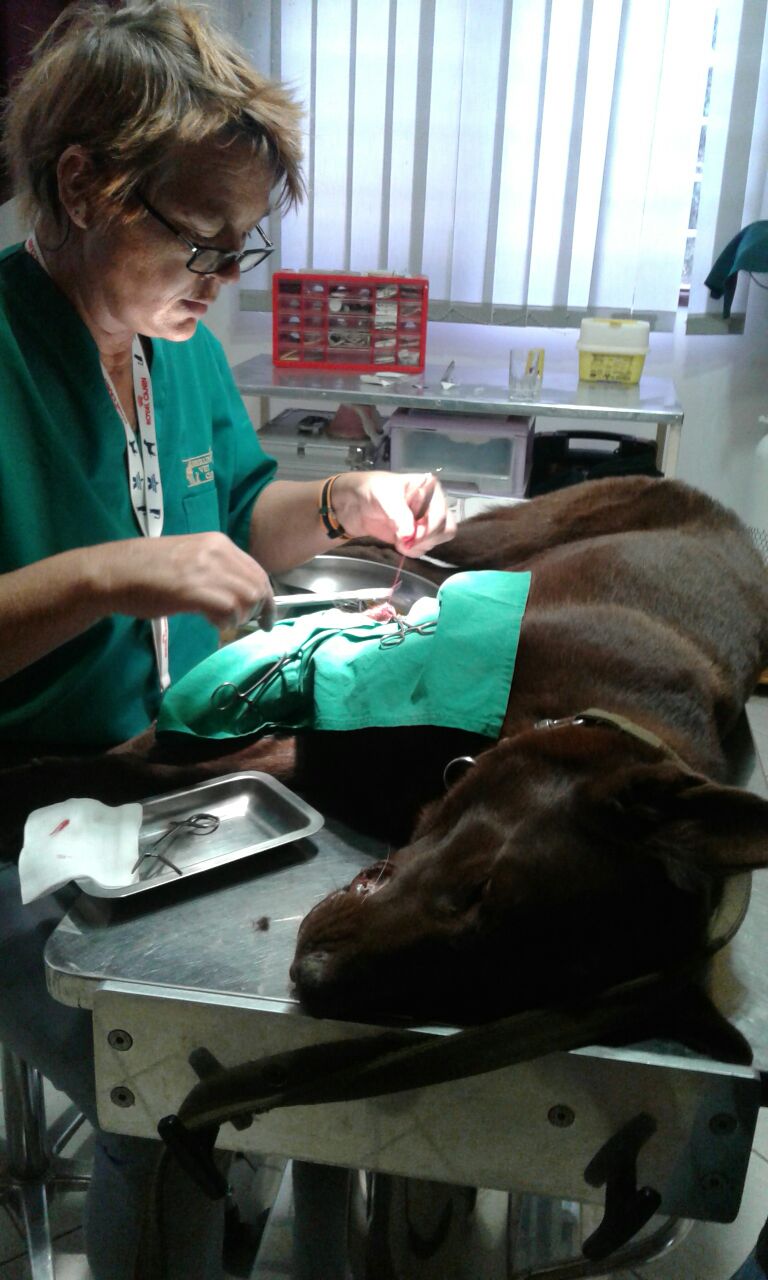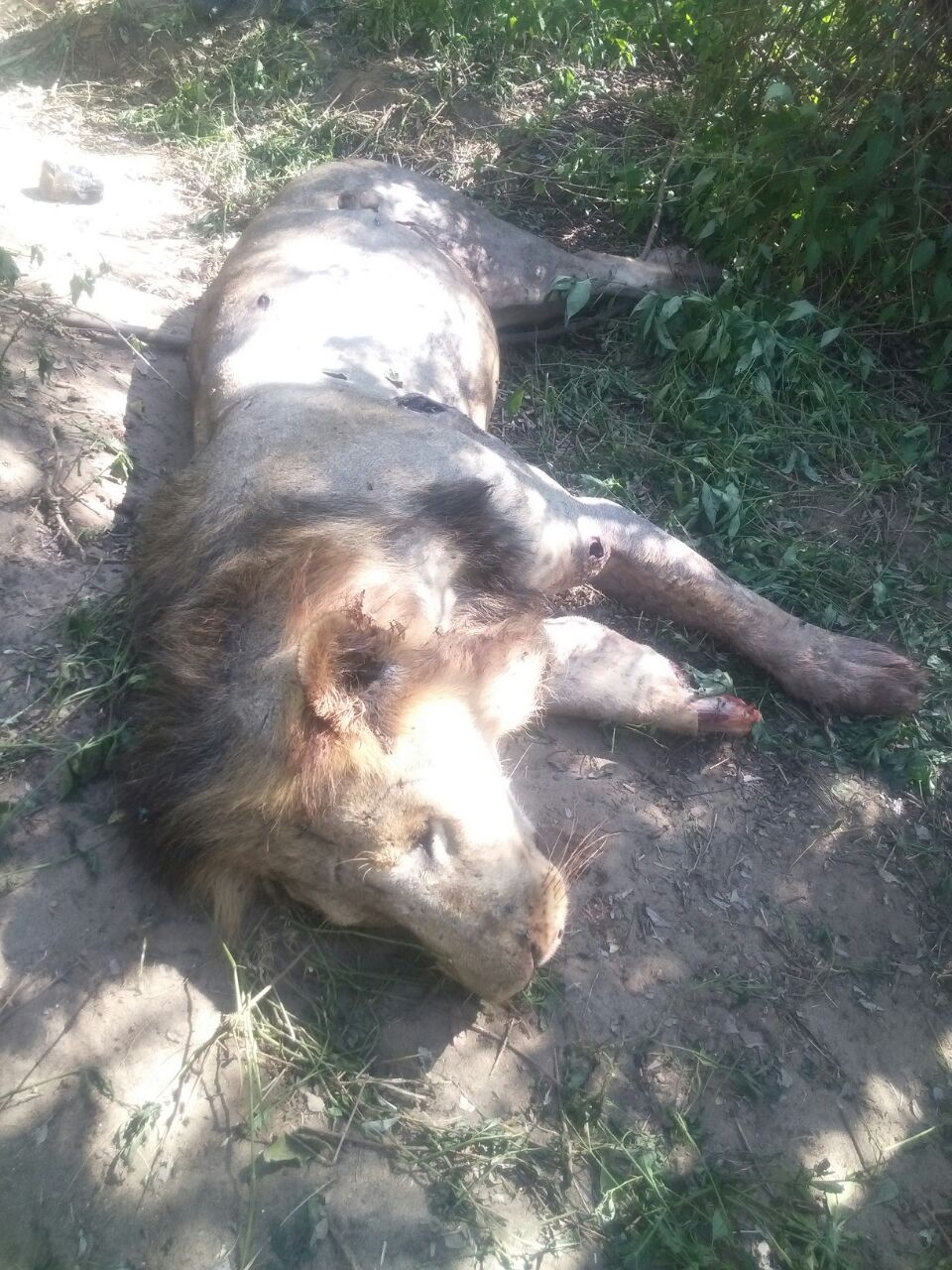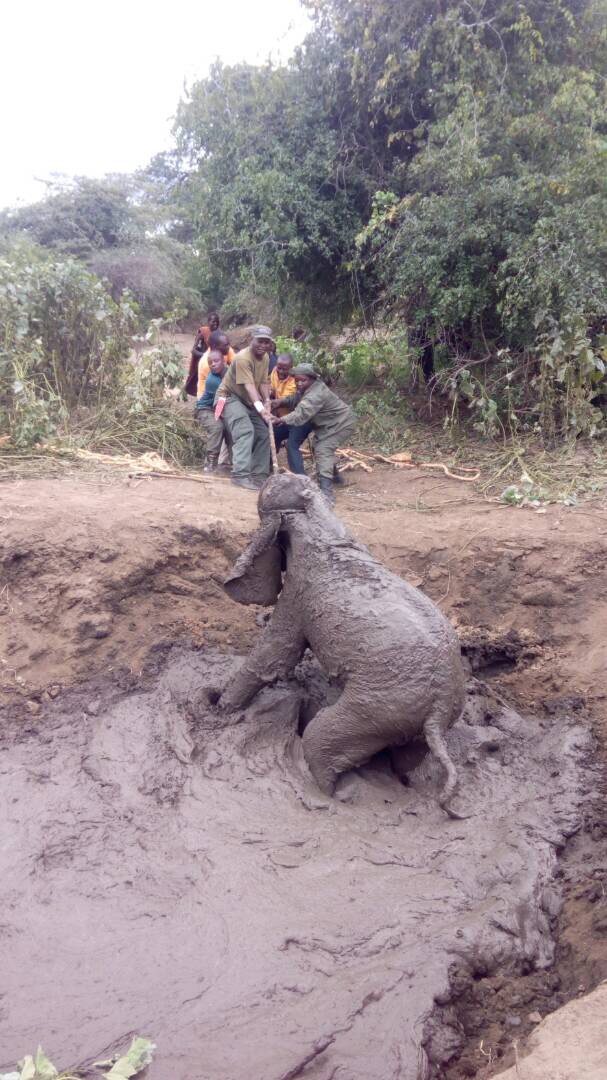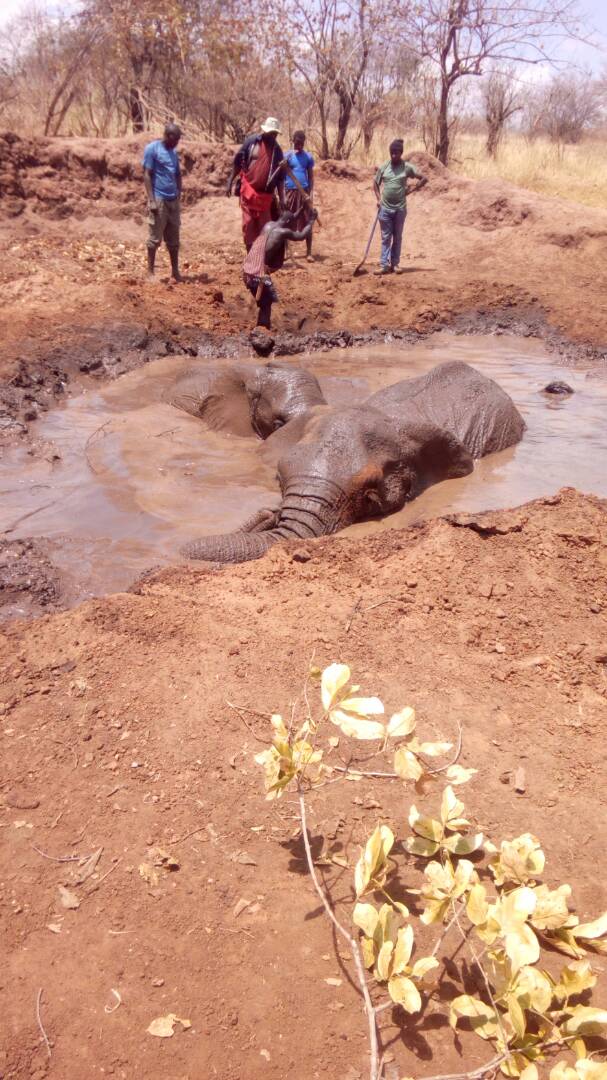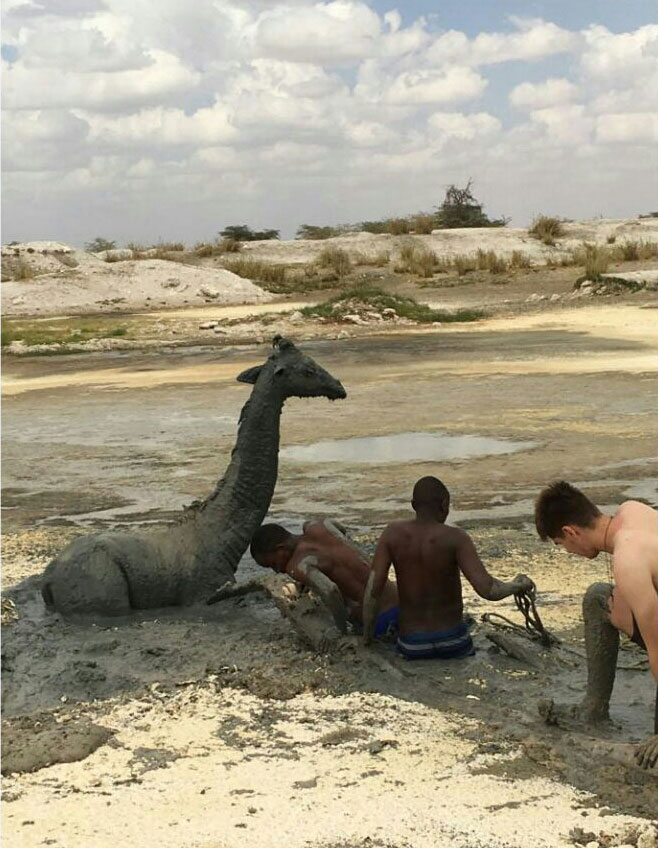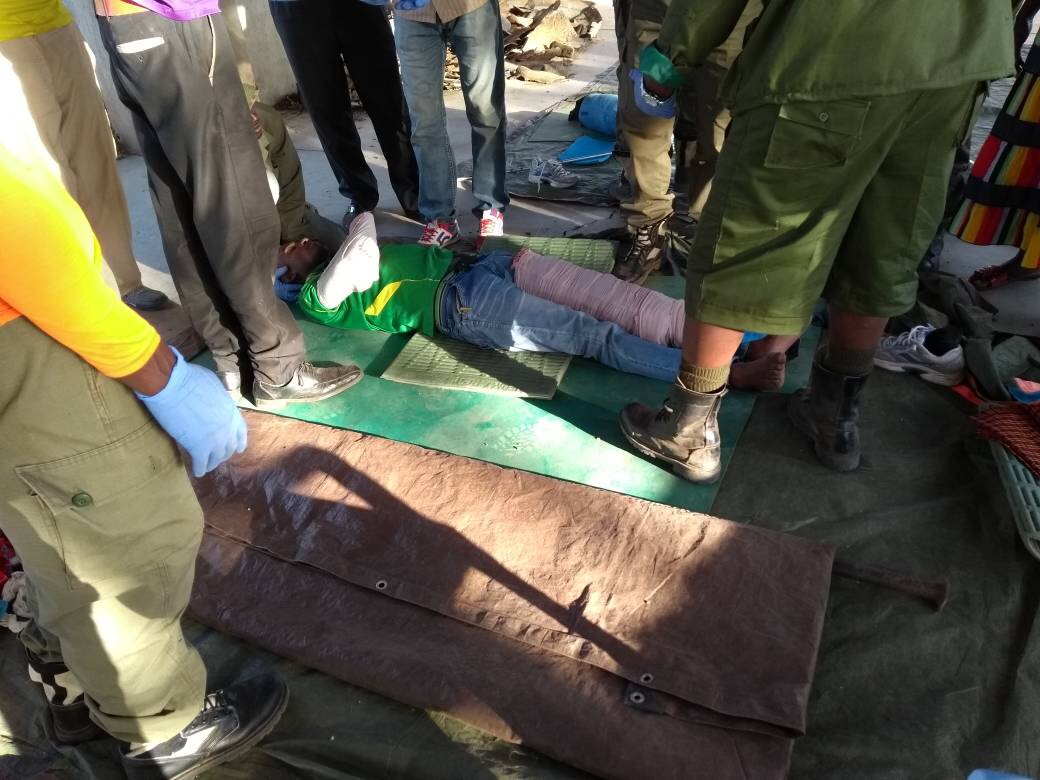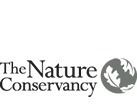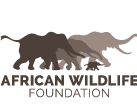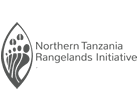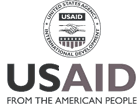A NOTE FROM DAMIAN BELL
Executive Director of Honeyguide
IMPACT
Human Wildlife Conflict Mitigation – Helping people and wildlife live together.
2017 Highlights
- Reduced crop damage by elephants by 90% in all villages in Randilen and Burunge WMA.
- $6000 from communities who see a value in the project and start committing their own funds.
- Developed HEC handbook in Swahili to enable scaling up and reaching other communities in Tanzania.
- Zero elephants or people killed due to HEC in Randilen and Burunge WMA
Reducing the costs of living with wildlife is essential if we want to see communities supporting and investing in conservation. Take elephants, for example. They are large, can be dangerous, and a herd can demolish a farmer’s entire annual crop in just one night: this is what is termed ‘Human Elephant Conflict’(HEC). To address this, Honeyguide has developed a HEC toolkit that has reduced crop damage by elephants by a staggering 90%, which has helped change community attitudes towards wildlife and the broader wildlife management area that serves as a critical conservation area. Because of the success of the toolkit, communities where we work are now investing their own funds into these kits. It is our long-term goal that the HEC program is funded 100% by communities, and we are gradually moving in this direction. We want to see communities not only benefit from conservation, but investing in conservation efforts themselves, truly owning it.
In 2013 we had about 35 community volunteers out every night with crop protection toolkits; by 2017 the number of volunteers was closer to 700 community members”.
Download
Learn more how to help our HWC program, download our pdf Human wildlife conflict program
Natural Resource Protection – Keeping wildlife safe and thriving
2017 Highlights
- Zero elephant poached in all Honeyguide areas in 2017.
- 14 village game scouts trained on Basic First Aid and 19 Village game scouts trained on Wilderness First Aid; 2 people have been saved using the skills learned.
- One new ranger post in Randilen WMA, enabling the rangers to extend their range by a further 550 sq kms.
During a time when elephant poaching is a serious threat to the species at large, we are proud that in the areas where Honeyguide works zero elephants have been killed. We deploy a number of key strategies as part of our elephant protection work; however, protection of wildlife is an intelligence-based affair, the better intelligence, the more successes the protection team enjoy; the higher the risks for poachers; leading to a result of less poaching.
Training is key to motivating the rangers in the field and how they perceive themselves and their future. All the rangers have undergone training for digital data collection using SMART, a conservation software tool that monitors their patrols, incidents, movements and efforts; this tool incentives the rangers and calculates their bonuses or rewards dependent on the rangers efforts.
The rangers do not only protect wildlife, they are also responsible for protecting the woodlands from deforestation and the rangelands from illegal livestock grazing.
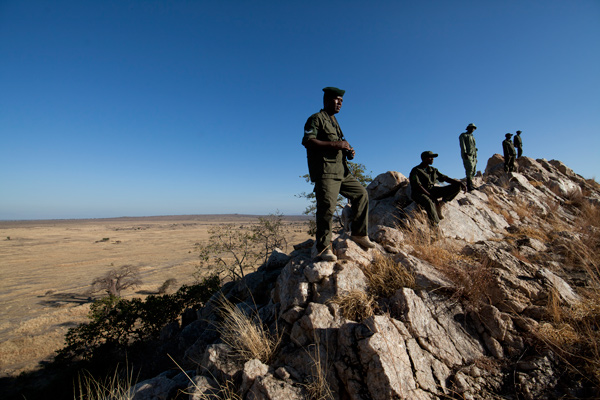
Download
Researcher, Derek Lee’s recent report published in the Journal of Mammalogy 2018; clarifies the success of Randilen WMA as a conservation area: Lee & Bond 2018 Quantifying the ecological success of a community-based wildlife conservation area in Tanzania
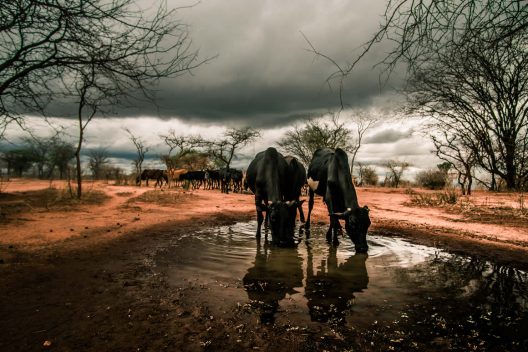
When a drought becomes a bonus.
Poor rains between March and June and the failure of the November rains resulted in a drought towards the end of the 2017. The Maasai livestock was threatened, grass for the livestock was disappearing fast, and people were struggling to meet their day-to-day needs. However, Randilen WMA had protected their rangelands and grass, and by October Randilen still had plenty of grass as opposed to some of the surrounding areas. Now, the community were able to send their livestock to the dry season grazing zone of Randilen. This unexpected outcome has probably been one of Randilen greatest success stories from the community perspective: “without Randilen, our cattle would not have survived” was often heard when talking to communities. Its challenges such as these that become opportunities, wildlife attracts tourism that then provides funds for the WMA to protect the community grass bank, communities value this service, communities value wildlife.
Enterprise and business development – Creating ways for conservation to pay
2017 Highlights
- Business plan for Randilen WMA provides clear strategic objectives to reach sustainability; revenue targets for tourism identified to increase occupancy rates from current 9% to 32% by 2021.
- Enhanced tourism attractions, such as new campsites and sign boards in Enduimet WMA.
- Development of 3 entrance gates into Randilen WMA to collect entrance fees.
One of Honeyguide’s strategic objectives is to achieve ecological and financial independence of Enduimet and Randilen WMA by 2021 in order to establish these as strong models of Tanzanian community-based conservation. In turn, Honeyguide invests in tourism infrastructure and marketing initiatives that will lead to a resilient tourism base for these WMAs.
In 2017, Honeyguide helped Randilen WMA develop a business plan, which will guide both the WMA and investments by Honeyguide and their partners over the next 5 years. Initial investments in 2017 supported the foundation of the business with development of the entrance gates with capability to collect entrance fees.
Enduimet WMA, where we have been working in tourism since 2014 have seen the results of the investments, tourism revenues have increased by 23% since 2016
Tourism promotional video developed for Enduimet WMA
Management and governance – Ensuring Wildlife Management Areas run well- for people and wildlife.
2017 Highlights
- Business and tourism training for RWMA community board members building their capacity to understand and support the sustainability objectives.
- Increased capacity of Randilen WMA Manager’s with training on leadership, report writing and tourism as a business.
- Trained MWMA, RWMA and EWMA accountants and provided QuickBooks software for management of WMA finances.
WMAs’ need to be well managed, transparent and viable for them to stand on their own, which is why Honeyguide works with WMAs to build and strengthen their management systems. In Randilen, we started at the very beginning by recruiting a manager and accountant in 2016 from the local community; so in 2017 we focused our efforts to build the capacity of this management team. This included training on their core business of tourism.
As the tourism grows, so does the income and expenses; being able to keep track of the revenue is key stone to financial sustainability. Both Enduimet and Randilen WMA have moved away from keeping accounts in books and now use QuickBooks, an accounting software. In Randilen, an independent audit on the financial systems was conducted to provide a framework to improve the management of their financial assets.
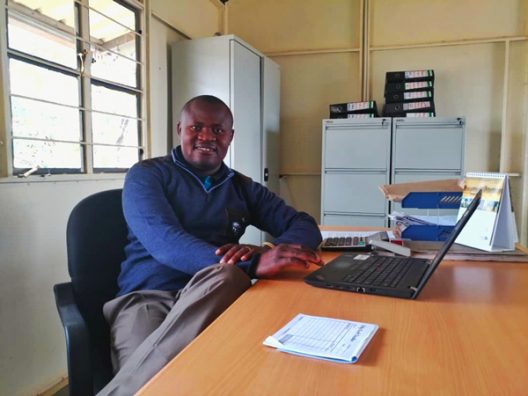
Awareness – Appreciating and understanding the value of wildlife.
2017 Highlights
- Film promoting the value of WMAs and wildlife conservation shown to 7294 community members of the Randilen WMA
- 200 Posters were developed and disseminated to all member villages of Randilen WMA ahead of the governing board elections to strengthen the community understanding of the WMA.
Honeyguide believes that when communities see and understand the value that WMAs provide, they will be more willing and able to participate and support the goals of the WMA. Thus, we use different medium to connect with the community, such as posters, fliers and film. Honeyguide have found that film that has the ability to reach out to all age groups, from grandmothers to school children, with a consistent message. In 2017, Honeyguide developed a film on Randilen WMA, and a total of 7,294 people saw the film, which represents 60% of the population.
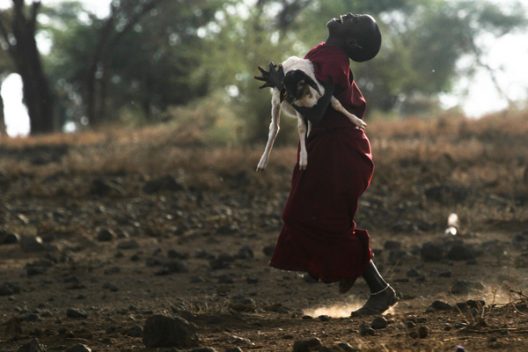
What we do
A NOTE FROM SAM SHABA
Programs Manager of Honeyguide
Strategic Plan 2017 – 2021
Honeyguide’s major goal is that communities surrounding wildlife in Northern Tanzania protect and benefit from the rich wildlife around them. WMAs benefit locals the most and our plan for the next five years is to establish Randilen WMA and Enduimet WMA, our two projects as strong models of Tanzania community-based conservation.
Read our strategic plan for 2017- 2021 where we cover our strategy, vision and mission for a Tanzania whose community and wildlife coexist peacefully.
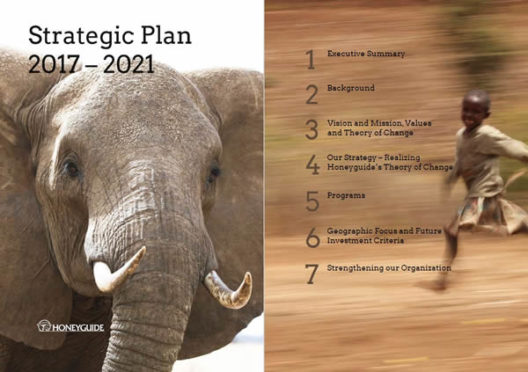
Stories from the field
Clue in the broken padlock
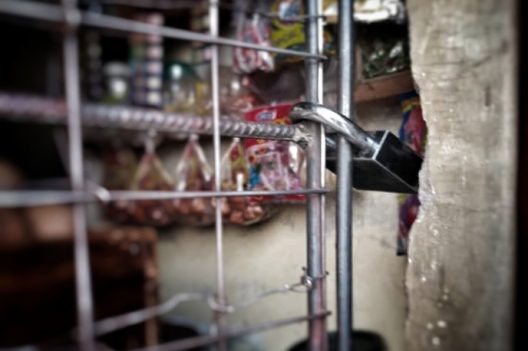
On 14th April 2018, a Saturday morning, Emmanuel Laizer, the head of the Serengeti K9 unit team received an information from the local police department that thieves have broken into two shops at the local village of Natta; adjacent to the Ikoma Wildlife Management Area. They knew this was going to be a difficult case, two shops in the center of the village, almost guaranteed that the ‘evidence had been contaminated’; this means that if many people such as all the neighbors and community members go into the shop, the dogs will not be able to separate the scent of the thieves and the scent of the onlookers. However Emmanuel could not resist the challenge; could he and Jerry find this scent
Finding Jaquy
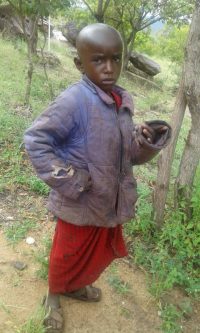 Anti-poaching, maintenance, community education… these are some of the more common day to day activities of a community game scout. But in April 2017, the rangers of Randilen WMA added yet another role to the job description when they rescued a little Masaai boy after he lost his way. Jaquy Mistawasi is only eight years old, but with the great responsibility of ensuring his family’s cattle and goats find fresh pasture every day.
Anti-poaching, maintenance, community education… these are some of the more common day to day activities of a community game scout. But in April 2017, the rangers of Randilen WMA added yet another role to the job description when they rescued a little Masaai boy after he lost his way. Jaquy Mistawasi is only eight years old, but with the great responsibility of ensuring his family’s cattle and goats find fresh pasture every day.
In April, when Jaquy was out herding, he lost his way and had to spend the night alone in the bush. The risk of wild animals to a small child alone is significant, and no doubt he slept fitfully as he the imagined leopards, buffalo and hyena that could have been lurking nearby. Luckily in the morning after he walked aimlessly for 6 kms, he managed to catch the attention of the community game scout. who were searching for him and able to deliver him safely to his home, 6kms away!
Needless to say, his family were relieved, delighted and grateful by his safe return. Because of actions such as these, the Randilen anti-poaching rangers are respected and valued by the communities, and in return, the communities support these rangers with any information on illegal activity; this mutual service is the core of community based conservation.
Theory of Change – Saving big spaces for people and wildlife for generations to come.
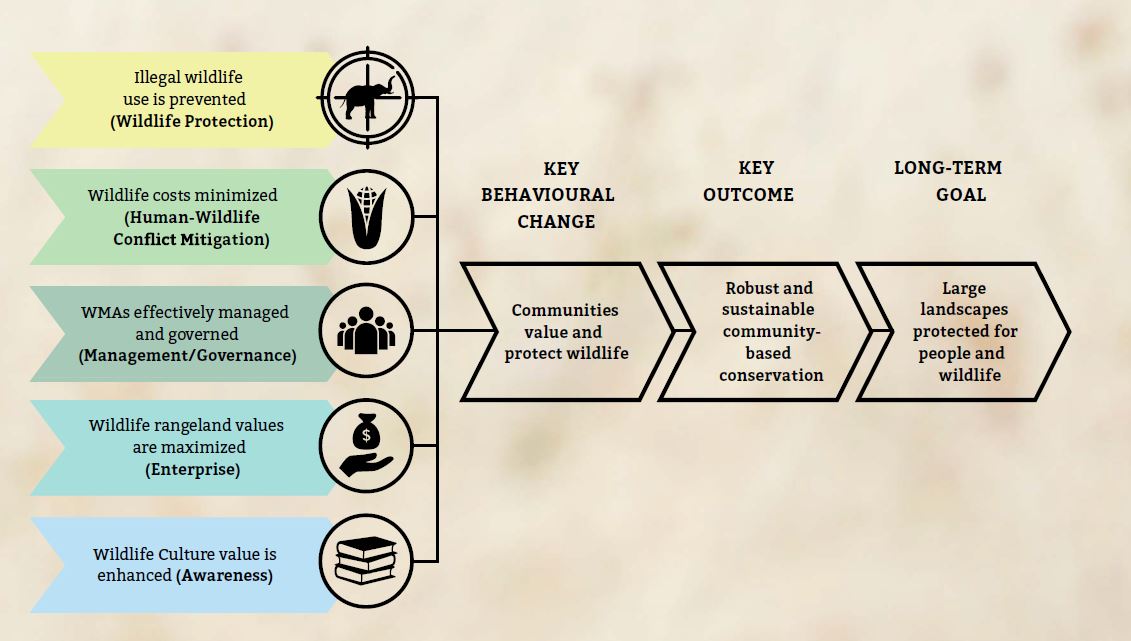
Team
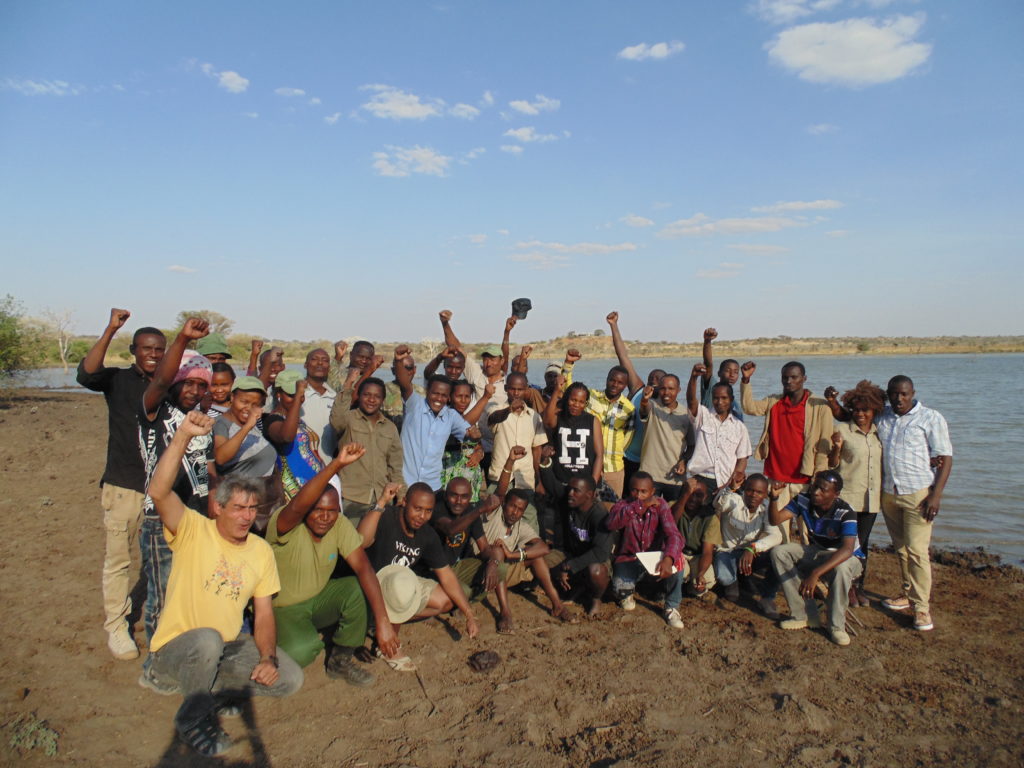
A Year in Pictures
Financials
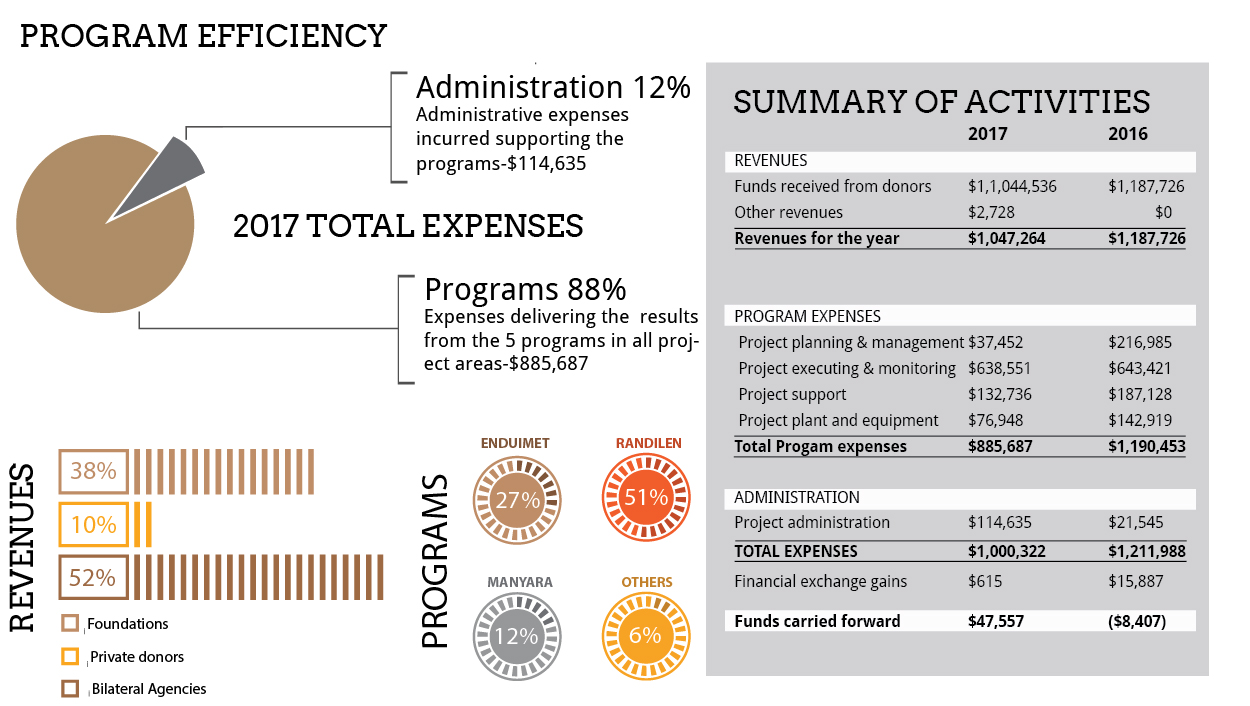
Goals for 2018
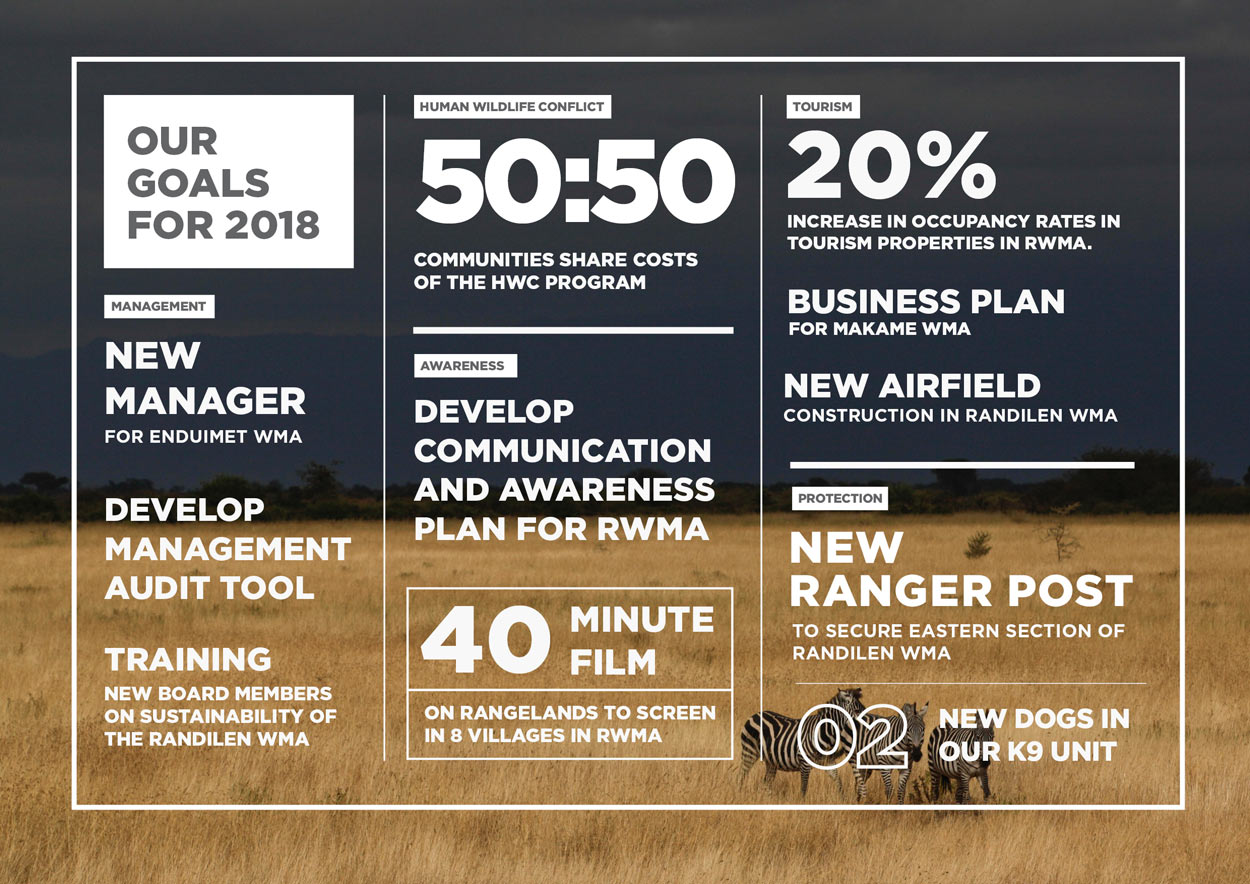
Partners and Supporters
DROLLINGER FAMILY CHARITABLE FOUNDATION
DROLLINGER FAMILY CHARITABLE FOUNDATION
Generous support the Randilen WMA with construction of entrance gates, offices, management housing; provision of new vehicle and development of tourism interpretive boards.JOHN & ALEX ENGS FAMILY
JOHN & ALEX ENGS FAMILY
Generously supported the growth and sustainability, providing the opportunity for of the organization Honeyguide and their team to continue their great work.How you can help
Invest in sustainable community owned and managed conservation.
Fund Us – Help us make community conservation in Tanzania work
Your investment today will lead to long-term sustainability for communities and conservation. For example, in Randilen WMA, we just need four more years of solid support to get the WMA running almost entirely on its own:
2019- $170,000
2020- $100,000
2021-$60,000
2022-$30,000
Learn more about supporting Honeyguide and how you can leave a lasting conservation legacy in Tanzania. Contact our Executive Director, Damian Bell at damian@honeyguide.org to learn more.
*These funds will allow for Honeyguide to support Randilen as well as enable Randilen WMA to purchase additional 2 vehicle, provide for shortfall of salaries for rangers and management whilst tourist revenues grow over the next 4 years for the WMA to become financially independent.

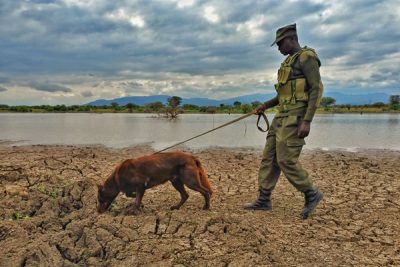 It was not a clear home run, Jerry could not isolate the scent from the padlock with those on the ground around the shop and village, he could not track. Back to the kennels today, things did not workout.
It was not a clear home run, Jerry could not isolate the scent from the padlock with those on the ground around the shop and village, he could not track. Back to the kennels today, things did not workout.
